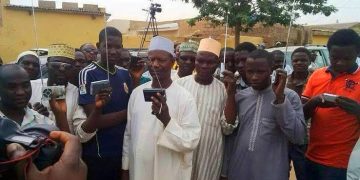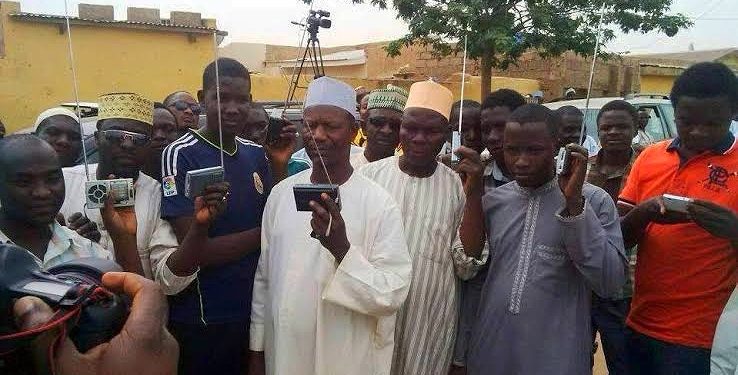By John Ikani
Nigeria is on edge as election officials tally tens of millions of votes to determine who will become president and control its national assembly.
Saturday’s voting was marred by delays and sporadic violence, but concerns of widespread chaos proved unfounded.
Early hopes that official nationwide results could be expected from Sunday have been dashed due to significant technical issues with a new system deployed by Nigeria’s Independent National Electoral Commission (INEC).
The final election results are expected by the middle of this week.
Analysts view this as a “bellwether” election that could be a crucial turning point for Nigeria after several years of worsening insecurity and economic struggles.
Many believe that a credible poll and progress in tackling the country’s multiple problems is vital for stability across a swath of Africa.
18 candidates are vying to replace the outgoing two-term president, Muhammadu Buhari, but only three are considered to have a credible chance of winning power: Bola Tinubu from the ruling All Progressives Congress, Atiku Abubakar of the main opposition People’s Democratic party, and the Labour party’s Peter Obi, who is leading in some polls.
Tinubu, 70, and Atiku, 76, are seen as traditional politicians representing Nigeria’s established political elite.
Obi, 62, is considered a reformist who has reached across the country’s fault lines to woo voters from all ethnic and religious communities.
His challenge threatens the dominance of the two parties in power since the end of military rule in 1999, making Saturday’s election the most competitive for decades.
On Saturday, Obi said he was confident of victory.
“I have the mental capacity, energy and drive to lead this country. We need to get things right in Nigeria,” the tycoon told reporters.
Although observers differ over the turnout, with no reliable counts available, some early estimates suggest a high turnout, which would be expected to deliver a boost to Obi, who is popular among young people that make up about a third of the 87 million eligible voters.
Tinubu, whose campaign slogan was “it’s my turn,” said he was “certain of victory”.
Although the contest looks close, Nigerian electoral law makes a runoff unlikely as the winning candidate needs only a plurality of votes, provided they get 25% of the vote in at least two-thirds of the 36 states.
Nigerian electoral officials said they remained confident about the electoral process.
“We have lost ballot boxes here and there… but we will continue to protect the process and we will continue to proceed courageously and ensure that we conclude this in a very free, fair and credible manner,” said the INEC’s chair, Mahmood Yakubu.
However, multiple delays, incidents of disruption, and technological problems with the new voting system have come under fierce criticism.
Yiaga Africa, a coalition of civil society groups, said it had concerns about “voter suppression and irregularities”.
“It gets to the point where we can no longer accept the excuses [of INEC],” a spokesperson for the coalition said at a press conference on Sunday.




































